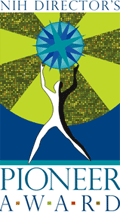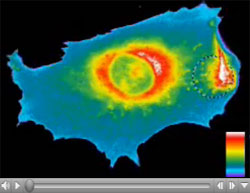Later this month, the National Advisory General Medical Sciences Council will hold the first of its three meetings in 2011. While many applicants, grantees and reviewers are familiar with the roles and processes of study sections, fewer know how an advisory council works. In this post, I’ll provide an overview of its many critical roles.
Council members are leaders in the biological and medical sciences, education, health care and public affairs. Their areas of expertise cover the broad range of scientific fields supported by NIGMS. The Council performs the second level of peer review for research and research training grant applications assigned to NIGMS. Council members also offer advice and recommendations on policy and program development, program implementation, evaluation and other matters of significance to the mission and goals of the Institute.
A portion of each Council meeting is open to the public.
For the peer review function, which occurs during the part of the meeting that is closed to the public, Council members read summary statements, providing a general check on the quality of the first level of peer review. They advise us if they find cases where the comments and scores do not appear to be in good alignment. Their evaluation complements the initial peer review done by study sections, as it focuses primarily on summary statements rather than on applications (although Council members may have access to the applications).
Members also provide advice regarding formal appeals, typically discussing 10-20 cases per meeting in which a procedural aspect may have significantly influenced the initial peer review process.
The Council also provides input on cases where staff are considering exceptions to the well-funded laboratory policy, and it approves the potential funding of grants to investigators at foreign institutions. Another area of Council input relates to Method to Extend Research in Time (MERIT) awards. Finally, Council members point out applications that they feel are particularly interesting based on their scientific expertise and knowledge of trends in particular fields. They explain their perspective to NIGMS staff, who incorporate this input in subsequent steps of the funding decision process. I’ll describe these steps in an upcoming post.
The policy and program advisory function includes discussing “concept clearances,” or ideas for new initiatives being considered within the Institute. These can take the form of proposed requests for applications (RFAs) or program announcements (PAs). Council members provide critical analysis and feedback about the appropriateness of proposed initiatives and factors to consider should they be implemented. Approved concept clearances are posted soon after each Council meeting on the NIGMS Web site and often on the Feedback Loop. NIGMS staff can then receive input from the scientific community as they refine the funding opportunity announcements.
This month’s meeting will include one concept clearance presentation, on macromolecular complexes.
Council members also give input and feedback on assessments and formal evaluations of specific NIGMS programs, such as the Protein Structure Initiative. When the need arises, Council members form working groups focused on specific issues. To ensure an appropriate range of expertise and perspectives, these groups can include non-Council members, as well. Finally, the Council receives periodic reports about ongoing initiatives in order to monitor how they are proceeding and offer advice about possible changes.
 NIH recently conducted an evaluation of the short-term outcome of the NIH Director Pioneer’s Award program, which started in 2004 and is managed by NIGMS. The report was positive and confirmed that the research supported by the program truly has been pioneering, not only in pursuing highly creative and often unconventional approaches but also in leading to additional “high-risk, high-reward” programs at NIH and other funding agencies.
NIH recently conducted an evaluation of the short-term outcome of the NIH Director Pioneer’s Award program, which started in 2004 and is managed by NIGMS. The report was positive and confirmed that the research supported by the program truly has been pioneering, not only in pursuing highly creative and often unconventional approaches but also in leading to additional “high-risk, high-reward” programs at NIH and other funding agencies.


 NIH is seeking broad input from the scientific community on challenges and opportunities in single-cell analysis, a topic of great interest and relevance to many NIGMS grantees and applicants. Please help NIH shape its future programs in this emerging research area by sending in your opinions. The
NIH is seeking broad input from the scientific community on challenges and opportunities in single-cell analysis, a topic of great interest and relevance to many NIGMS grantees and applicants. Please help NIH shape its future programs in this emerging research area by sending in your opinions. The  In March 2010, I announced that we were in the process of developing a strategic plan for research training, and I asked for your input.
In March 2010, I announced that we were in the process of developing a strategic plan for research training, and I asked for your input. NIH recently launched a new site for communication with the scientific community, http://feedback.nih.gov/. The site has already been quite active, since it requests input on a proposed National Center for Advancing Translational Sciences (NCATS) and a proposed institute focused on substance use, abuse and addiction research.
NIH recently launched a new site for communication with the scientific community, http://feedback.nih.gov/. The site has already been quite active, since it requests input on a proposed National Center for Advancing Translational Sciences (NCATS) and a proposed institute focused on substance use, abuse and addiction research. In March, I announced the launch of a strategic planning process focused on training and career development. I encourage all stakeholders, including faculty members, postdocs, graduate students, university administrators and government and industry scientists to provide input on this important topic.
In March, I announced the launch of a strategic planning process focused on training and career development. I encourage all stakeholders, including faculty members, postdocs, graduate students, university administrators and government and industry scientists to provide input on this important topic.